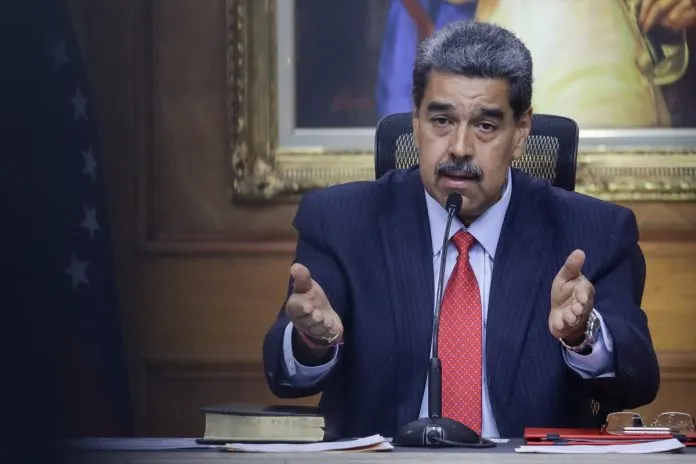Introduction
In the wake of the recent Venezuelan elections, the political landscape in the country has been marked by escalating tensions and unrest. President Nicolás Maduro has intensified his rhetoric against opposition leaders, particularly targeting Edmundo González Urrutia and María Corina Machado. These developments follow widespread protests and significant unrest throughout Venezuela, prompting a response from human rights organizations and drawing international attention. This comprehensive analysis delves into the current situation, examining Maduro’s statements, the ongoing protests, and the broader implications for Venezuelan society.
Maduro’s Threats and Accusations
President Maduro’s Remarks
On Wednesday, Venezuelan President Nicolás Maduro reiterated his harsh stance against opposition leaders Edmundo González Urrutia and María Corina Machado. Maduro’s comments reflect his continued hostility towards these figures, whom he has accused of engaging in “criminal” activities. This rhetoric has come amid a backdrop of spontaneous protests across Venezuela, triggered by dissatisfaction with the official results of the recent elections.
Maduro has made it clear that he believes González Urrutia and Machado should face legal repercussions. “If you ask me as a citizen, I would say these people need to be behind bars, behind bars, and there must be justice in Venezuela,” Maduro declared. His comments highlight the deepening polarization within the country and the ongoing conflict between the government and opposition.
Context of the Threats
Maduro’s threats are part of a broader campaign to suppress dissent and maintain control amidst a period of political turbulence. The Venezuelan government has been accused of responding to protests with increasing severity, leading to heightened tensions between the state and its critics. Maduro’s statements can be seen as a part of this broader strategy to undermine opposition leadership and quash challenges to his authority.
Protests and Arrests
Recent Protests
Following the announcement of the election results, which declared Maduro the victor, Venezuela has witnessed a series of spontaneous protests. These demonstrations have been fueled by widespread allegations of electoral fraud and dissatisfaction with the official results. The protests have been characterized by their spontaneous nature, reflecting the frustrations of a populace that feels disenfranchised.
The protests have not been limited to major cities; they have spread across various regions, demonstrating the broad-based discontent with the electoral process. The scale and intensity of the protests have underscored the deep-seated grievances among Venezuelans regarding both the election results and the broader political situation.
Arrests and Casualties
In response to the protests, Venezuelan authorities have conducted a significant number of arrests. According to Foro Penal, a prominent human rights organization, the number of confirmed arrests has risen to 278 since July 29, 2024. The organization has also reported 11 fatalities linked to the protests. These figures reflect the severity of the government’s crackdown on dissent and the broader implications for civil liberties in Venezuela.
Alfredo Romero, the director of Foro Penal, has provided detailed updates on the situation via social media. He reported that 95 of those arrested are being held at a National Bolivarian Police (PNB) facility in Boleíta. Additionally, Romero highlighted that 15 individuals were detained by the National Guard following an opposition rally on Francisco de Miranda Avenue in Altamira.
The state of Barinas has emerged as the second most affected region in terms of arrests related to the protests. This reflects a broader pattern of governmental repression in areas with significant opposition activity.
Human Rights and International Response
Human Rights Concerns
The escalating violence and the significant number of arrests have raised serious human rights concerns. Organizations like Foro Penal have documented the impact of the government’s actions on Venezuelan citizens, including reports of arbitrary detention and excessive use of force. The situation has prompted calls for greater international scrutiny and intervention to address these human rights abuses.
The human rights community has expressed alarm over the deteriorating conditions in Venezuela, emphasizing the need for accountability and protection of civil liberties. The international response has included calls for investigations into the alleged abuses and pressure on the Venezuelan government to adhere to international human rights standards.
International Reactions
The international community has closely monitored the situation in Venezuela, with various countries and organizations expressing concern over the handling of the elections and the subsequent crackdown on protests. The international response has included statements from governments and human rights organizations advocating for transparency and respect for democratic principles.
The diplomatic fallout from Venezuela’s handling of the situation has contributed to a broader debate about international intervention and support for Venezuelan civil society. The ongoing crisis has highlighted the challenges of addressing human rights abuses in a context of political repression and international tensions.
Conclusion
The current situation in Venezuela, characterized by President Nicolás Maduro’s threats against opposition leaders and the widespread unrest following the recent elections, underscores the complex and volatile nature of the country’s political environment. The protests and subsequent government crackdown reflect deep-seated dissatisfaction and highlight significant concerns about human rights and democratic governance.
Maduro’s continued threats and the high number of arrests reveal the extent to which the Venezuelan government is willing to go to maintain its control amidst growing opposition. The international community’s response and the efforts of human rights organizations will be crucial in addressing the ongoing crisis and advocating for the rights of Venezuelan citizens.
For further updates and in-depth coverage of Latin American affairs, please visit our Latin America section.


